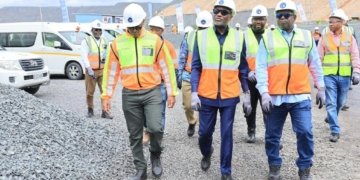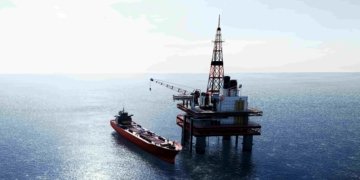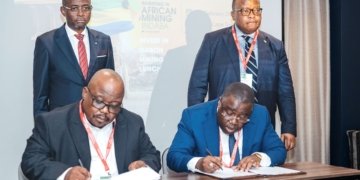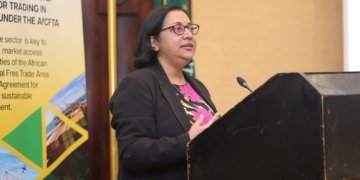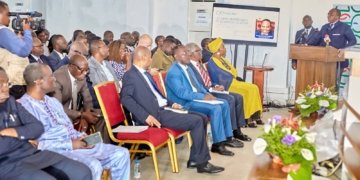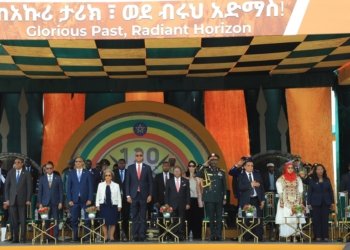KIGALI, Rwanda (BG) – As Africa accelerates its march toward sustainable energy solutions, the African Single Electricity Market (AfSEM) and the Continental Power Systems Master Plan (CMP) emerge as central frameworks to deliver universal energy access and achieve Sustainable Development Goal 7 (SDG 7).
SDG 7, or Global Goal 7, is one of 17 Sustainable Development Goals established by the United Nations General Assembly in 2015.
It aims to “Ensure access to affordable, reliable, sustainable and modern energy for all.” Access to energy is an important pillar for the well-being of the people, economic development, and poverty alleviation.
The ambitious AfSEM and CMP initiatives, highlighted in the “European Financial Flows on SDG7 to Africa” report published by the Africa-EU Energy Partnership (AEEP), promise transformative impacts across the continent.
The CMP, a continent-wide model for Africa’s electricity future, extends the target of universal electricity access to 2035, underscoring the immense work required to reach the SDG7 deadline of 2030.
Complementing this vision, AfSEM aims to integrate Africa’s electricity networks, fostering cross-border energy trade and enhancing regional stability.
These frameworks align with a vision for accessible, reliable, and clean energy that benefits all Africans.
Addressing Africa’s Electricity Challenges
According to the report, 588 million Africans lack access to electricity.
Despite increasing electricity coverage rates in sub-Saharan Africa from 38% in 2014 to 51% in 2022, rapid population growth continues challenging progress.
The report warns that if trends persist, 550 million Africans could still be without electricity by 2030, making frameworks like AfSEM and CMP critical for scaling investments and connecting underserved regions.
CMP and AfSEM’s integration into the African Union’s strategic energy plans symbolizes an opportunity to drive structural transformation by expanding grid access, developing renewable energy sources, and improving energy reliability and affordability across nations.
Financing the Transition to Sustainable Energy
The report reveals that achieving SDG7 across Africa will require annual investments of €20 billion in electrification.
However, between 2014 and 2022, the continent received an average of just €2.5 billion annually in electricity-access funding, highlighting the need for innovative financing mechanisms.
AfSEM and CMP serve as vehicles to attract international and regional investments.
By streamlining cross-border electricity markets and developing interconnected energy systems, these frameworks align with global initiatives like the Africa-EU Green Energy Initiative to mobilize public and private resources.
Catalyzing Renewable Energy and Efficiency
Renewable energy forms the backbone of Africa’s clean energy future.
The CMP envisions an addition of 750 GW of renewable capacity by 2040, a step toward fulfilling the region’s potential as a global renewable energy hub.
Between 2014 and 2022, renewable power capacity in Africa doubled from 32.5 GW to 59.4 GW, primarily driven by international commitments and projects under AfSEM’s guidance.
However, progress in renewable energy remains uneven, with limited investments in non-electricity sectors like clean cooking and energy efficiency.
The report emphasizes the need to broaden investments in these areas, which are critical for achieving the interconnected goals of SDG 7.
The Role of Policy and Regional Collaboration
The AEEP report identifies policy harmonization as key to unlocking Africa’s energy potential.
AfSEM, as Africa’s first continent-wide electricity market, exemplifies this strategy by fostering collaboration among member states, reducing regulatory barriers, and creating economies of scale.
CMP complements this effort by providing a roadmap for infrastructure development, grid expansion, and resource sharing.
Toward a Sustainable Energy Future
The report emphasizes that while the CMP and AfSEM are ambitious, their success depends on sustained financial, political, and institutional support.
These frameworks are about energy and reshaping Africa’s economic landscape, reinforcing the centrality of these initiatives to the continent’s broader development.
By leveraging AfSEM and CMP to their fullest potential, African governments and international partners can position the continent as a leader in sustainable energy, providing electricity and the economic and social transformations necessary to achieve SDG 7.

